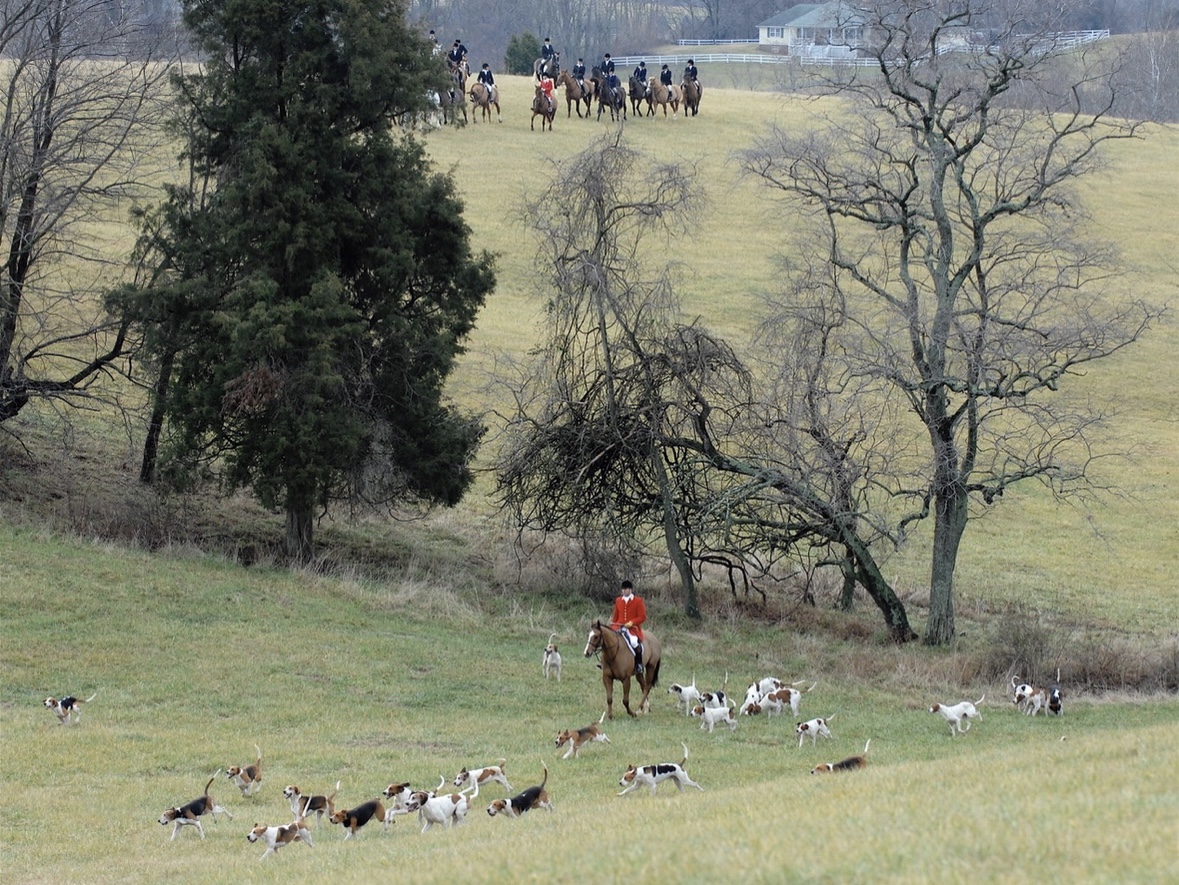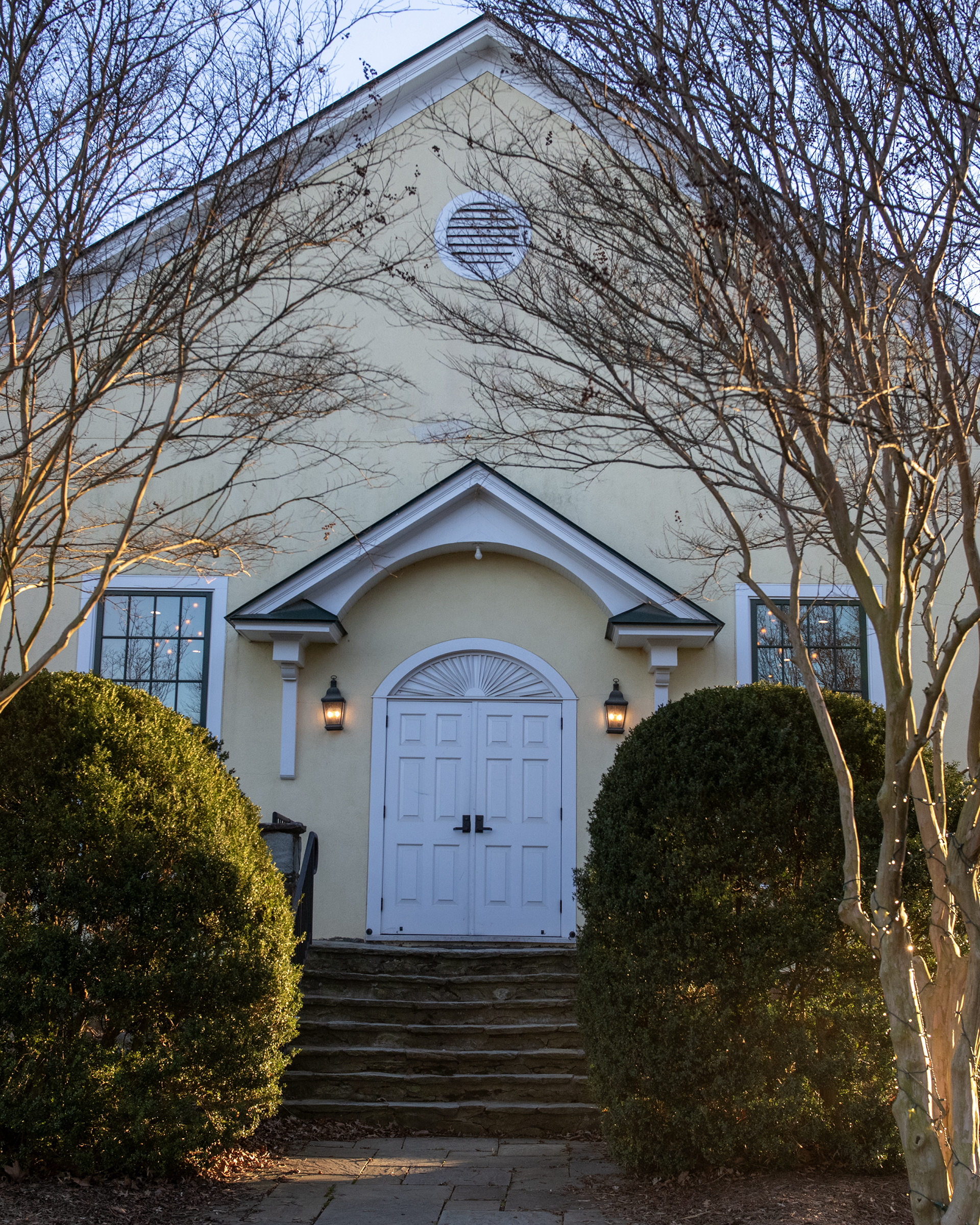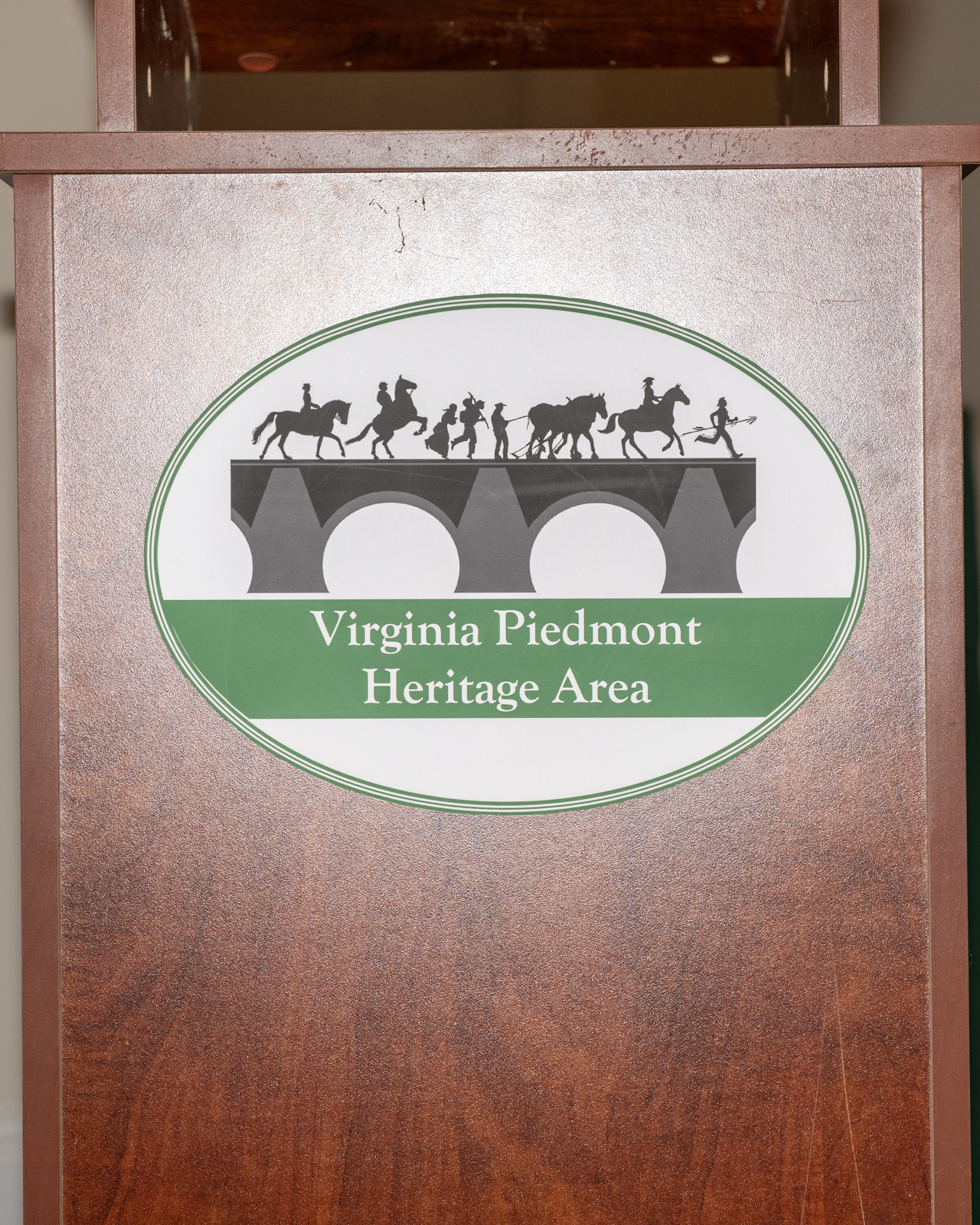A Night with the Masters

Written by Bill Kent | Photos by Joanne Maisano
What sold out Buchanan Hall on February 29 was more than a glimpse of the past. Billed as “The History of the Chase,” the evening promised a panel discussion with masters of six hunts that have made Hunt Country the capital of the sport.
Hosted by the Virginia Piedmont Heritage Area (VPHA), the event brought together Gregg Ryan of Piedmont Fox Hounds, David Moyes of the Loudoun Fairfax Hunt, Sue Bopp of the Warrenton Hunt, Jeb Hannum of Orange County Hounds, Anne McIntosh of the Blue Ridge Hunt, and Middleburg’s Penny Denegre, recently elected president of the Master Fox Hounds Association (MFHA).



The event also acted as a launch for the VPHA’s Rural Landowner Manual. A collaboration among conservation groups, the manual lists Hunt Country’s numerous preservation, agricultural, and environmental organizations, as well as local farm, winery, and equine associations.
“We hope to inspire future generations to care for and protect our outstanding historical resources,” said VPHA Chairman Steve Price in his introductory remarks. “Our community has a deep love and respect for the land we ride.”
Accompanied by pictures of hunts both past and present from Middleburg Photo, VHPA Education Director Travis Shaw took this most famous and colorful equine tradition all the way back to 16th-century England, where foxhunting was both “a form of recreation and pest control.” Shaw drew chuckles when he recited the names of avid huntsman George Washington’s hounds: Sweet Lips, Venus, Trulove, Taster, Tippler, and Drunkard.
Virginia’s Colonel Richard Henry Dulany founded the nation’s first hunt, the Piedmont Hounds, in 1840. Middleburg captured the hunting world’s attention in 1905 when American foxhounds proved their superiority over their distant English relatives. The 1907 establishment of the MFHA fixed Hunt Country’s place forever as the capital of American hunting.

That status is under threat, Rixeyville author, publisher, and panel discussion moderator John Harris Anderson mentioned after the six hunt masters took the stage. The number of foxhunting clubs is declining nationwide as land is sold piecemeal to those who do not understand hunt culture.
Yet, there is much to hope for, said Loudoun Fairfax Hunt Master David Moyes, if others follow the example of the family of the late Dr. Joseph Megeath Rogers, who dedicated more than 6,000 contiguous acres for hunting. Piedmont Fox Hounds’ Gregg Ryan praised the “quiet power” of Paul and Bunny Mellon, too, in persuading other landowners to put their property in conservation easements that would ensure the region’s hunt-friendly landscape.
Penny Denegre added that the MFHA has spent the last year studying hunts throughout the United States. Among the best practices was a hunting easement that would preserve hunt land “in perpetuity.”
“Education is where we’re starting,” said Sue Bopp of the Warrenton Hunt’s efforts to show young adults and children, as well as the greater business community, how important hunting is to the region.
Anne McIntosh noted that “there’s a mountain range between us and the rest of you,” which continues to insulate the Blue Ridge Hunt from piecemeal land sales and suburban development, though she said involving the larger riding community in the less formal third field has proved vital. “We need to make it [as] easy as possible for them to join us.”

Jeb Hannum said he made a point of taking a picnic basket filled with Hunt Country victuals when introducing himself to new landowners from California who had no idea their farm was part of Orange County Hounds’ hunting ground. This inspired moderator John Anderson to note the example of huntsman extraordinaire Melvin Poe, who visited local farmers at least once every year with bottles of his homemade wine. The audience expressed hearty approval.
Everyone agreed that the future of the hunt is in the young. “Get your kids interested in hunting,” Gregg Ryan advised. “My son wants to hunt with other kids.”
Involve them at the earliest age possible, Penny Denegre added. “Have them walk puppies. Everyone loves the puppies!”
To the question of which makes a better quarry, foxes or coyotes, Gregg Ryan said, “There are still more than enough foxes.” Jeb Hannum got applause when he agreed: “We’re not going to hunt coyotes until Piedmont does.”
The evening ended when Sue Bopp settled the question of which breed makes the best hunting horse: “The horse you trust.”


Among those attending was National Steeplechase Association President Dr. Al Griffin, who connected hunting’s importance to the larger need to preserve open space. “We all need open spaces. It makes sense to promote all the activities, sports, farms, and businesses that depend on open space to survive.”
Heather Heider of Van Vixen Farm was thrilled with the masters’ call for including outsiders into the hunt. “What they’ve said fits in with exactly what I want to do: bring more people to the hunt. Whatever age they are, from 7 to 70, with a few lessons and a desire to have fun, they can be a part of this. Anyone can hunt!” ML
Posted on: March 6, 2024








